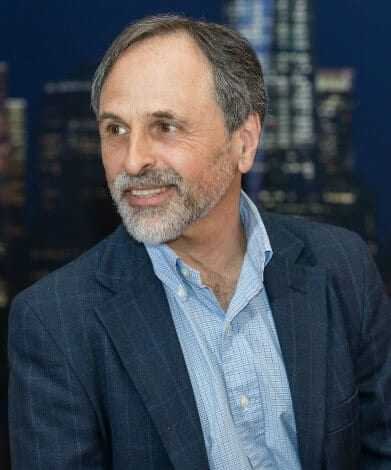Award-Winning Miller Says Goodbye to Pacific Sun
Pablo Voitzuk leaves California's Pacific Sun Farms in the wake of the company's decision to shut down its olive oil production mill after seven successful years and a plethora of awards.
 Pablo Voitzuk (Photo: NYIOOC)
Pablo Voitzuk (Photo: NYIOOC)After a seven-year stint with Pacific Sun Farms, miller Pablo Voitzuk has left the company. His departure comes after another successful award season for one of California’s most acclaimed brands and the decision by the company to wind down their olive oil business.
Love for olive oil creates a particular bond, which makes me think that we’ll stay connected, one way or another.
Pacific Sun Farms’ olive oils received 17 awards across four different competitions this year, including four Gold Awards and one Silver at the 2018 NYIOOC World Olive Oil Competition. “This recognition is an excellent note on which to end my association with Pacific Sun Farms. The company has decided to end their olive oil production,” Voitzuk wrote in a blog post. “Pacific Farms is mostly dedicated to farming walnuts, prunes and almonds. Olive oil was a secondary enterprise.”
In spite of all the success Voitzuk enjoyed at Pacific Sun Farms, the company struggled to turn enough of a profit in the enterprise.
Making money in the olive oil business is notoriously difficult, mainly due to a lack of consumer knowledge about high-quality extra virgin olive oil, which results in many simply selecting the cheapest oil on the shelf.
“In these years, the olive oil section grew a lot, both in quantity and quality,” Voitzuk told Olive Oil Times. “It became quite difficult for the company to keep up with it next to their main activities. And most importantly, the economy of it. We’re at a point in which we’d need investment and Pacific Sun Farms has those other priorities.”
During his tenure with Pacific Sun Farms, Voitzuk was instrumental in adopting new olive oil production processes which he learned during his time studying in Italy. These included using new crushing technologies, working with lower temperatures, minimizing malaxing times and immediate filtration, among others.

Pablo Voitzuk
By closely managing these processes, Voitzuk sought to emphasize the importance of achieving high levels of phenolic content in the olive oils. He said phenols are both “critical” and “essential” to the production of high-quality olive oil and something that every miller should keep in mind.
“All that has contributed to an ongoing conversation among producers and tasting panel members about these and related subjects that I find quite positive,” he said. “Those practices have proven that you can make good olive oil out of any olive, and that it’s never an olive variety that produces problems in the outcoming olive oil. As I always say: the olive is innocent, it’s what we do with it.”
Voitzuk is currently milling olives in Greyton, New Zealand, at The Olive Press. This is his second season in the country, where olive oil production is in its fledgling stages. When he returns to the Northern Hemisphere, he plans on working on several projects in the Mediterranean with his colleague, Marco Scannu.
Voitzuk said he enjoyed his time working in California, first with Apollo Olive Oil and then Pacific Sun Farms. Olive oil production is an evolving field, he said, and it is important to keep learning about the product while maintaining a “non-conformist attitude.”
Voitzuk does not have many regrets about his time working in California, he said, but if he could go back and do it all over again he would emphasize the importance and benefits of making olive farms organic.
“If I could go back I’d try to convince more olive growers to adopt organic agriculture,” he said. “I advocated for it, though I’ll do it way more. I see multiple benefits by moving away from an agriculture that is based on industrial pesticides. The good news is olives are a crop that is rather easily converted into organic. It’s quite doable.”
Voitzuk will teach in the Olive Oil Sommelier Certification program at the International Culinary Center’s Campbell, California campus this September and said he would like to judge again at the NYIOOC World Olive Oil Competition next year. He also believes that the bonds created through the camaraderie of olive oil will keep him in touch with his friends and colleagues from the West Coast.
“Love for olive oil creates a particular bond, which makes me think that we’ll stay connected, one way or another,” he said.








